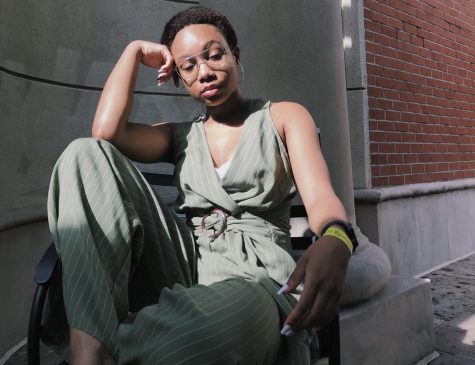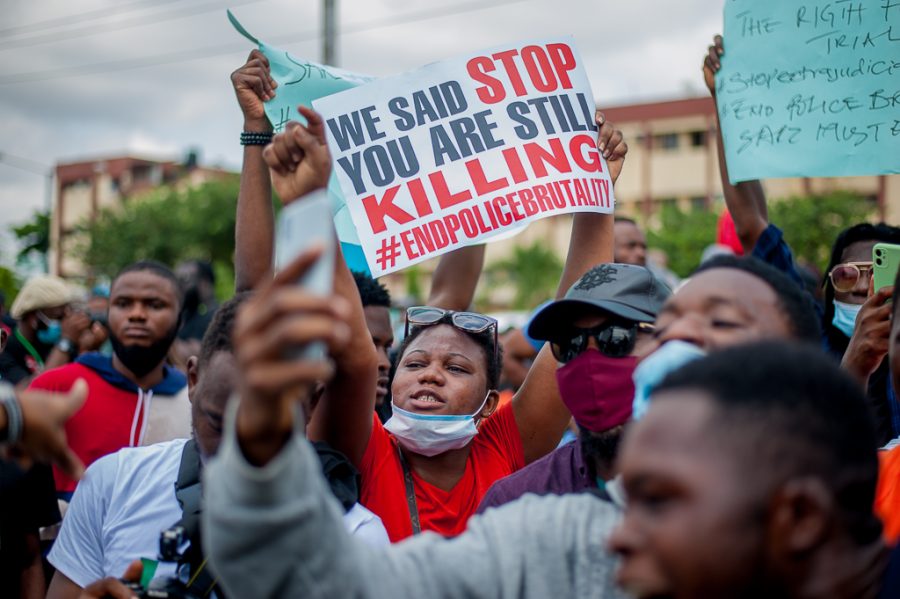Nigeria: The Revolt of the Enraged
Anger, Loss, Violence… Let’s talk about #EndSARS, and how it came to be.
Wikipedia Commons: Ayokanmi Oyeyemi
EndSARS protests have taken Nigeria by storm, and we can only hope that it ends well.
LAGOS—the gunshots were deafening.
What started as a protest at Lekki Toll Gate against #EndSARS—the “Special Anti Robbery Squad” within the Nigerian police force which went rogue decades ago—ended as a horrific massacre that took social media by storm.
How, why? What happened? No one really knows.
It was early evening, a couple of hours after the ignored 4 pm curfew that the governor of Lagos State had announced.
Allegedly, security cameras were removed, as well as the billboard lights that illuminate the area.
Around 7 pm, with absolutely no warning, the military arrived and began shooting haphazardly into the crowd.
Some protestors fled, others stayed and curled up into fetal positions, praying to live past the end of the night. Those who stayed began singing Nigeria’s National Anthem—perhaps it provided much-needed security where the military had failed to do so.
And then there were a few.
A few out of those who stayed who decided if they were to die, it wouldn’t be in vein.
The world was going to know what occurred here this night, the truth of what occurred here this night. Before they can fabricate a story that would turn everyone’s heads the other way.
#EndSARS is a protest that has captured the world’s attention and brought Nigeria to a standstill, all within a few weeks.
It began as a march in Lagos on October 8, initiated by musicians Run Town and Falz. Joined by organizations like the Women’s Coalition and disaffected youth, what was initially an objection of police brutality has become a referendum on the roots of the issue: corruption.
It was expected that 50 to 100 brave souls would come to speak out against the strict government.
More than 2,000 people were in attendance.
Mr. Macaroni, a popular comedian-turned-activist, staged a sit-in that same evening at the Lagos State House of Assembly. These protests captured the attention of other beloved musicians such as Burna Boy, Tiwa Savage, and Davido, and they began using their large social media presence to garner international attention.
The outcry was astounding.
A stream of donations followed, and encouragement came from all corners of the world. Everyone from Cardi B to Pope Francis was publicly supporting the protestors.
As time went on, independent demonstrations blossomed both in the country and cities around the world, from New York to Berlin. It seems the outrage has no age limit, as even children took to the streets carrying signs condemning SARS and proclaiming that Nigeria’s government, notorious for its indifference, ineptitude, and cupidity had “messed with the wrong generation.”
Government officials have struggled to contain a crusade with no leader, indignation with no class discrimination, and funding—primarily through bitcoin and crowdfunding—with no easily accessible dominance.
The analog powers versus a technological populace, and as of this time, the populace was winning.
Rallies continued through early October, with thousands standing together in a bold stand against the government. Afternoons to late evenings were filled with Soro Soke (speak louder) chants, candlelight vigils, and song.
Maybe change was coming after all.
And then the massacre at Lekki Toll Gate occurred, and all feelings of change were abruptly stifled, along with the lives of at least 12 peaceful protestors (Amnesty International).
Following the horror show, looters stormed the streets, swiftly removing the power authorities thought they had on the situation. Small businesses were destroyed, and even the palace of the Oba of Lagos, the city’s King and most significant traditional ruler, was ransacked, proving that this situation had devolved.
The most significant part, though?
Government food warehouses, revealed to be full of COVID relief packages that had been hidden from the public, were found.
And promptly raided.
Several states in Nigeria are currently under curfew, and the state’s entire police force has been deployed.
How did we get to the brink of revolution?
To answer that, one must understand the timeline of SARS itself.
The Special Anti Robbery Squad was formed in 1992 with the intention of combatting armed robbery and kidnapping through an elite crime fighting unit. Instead, they’ve been the embodiment of the very things they were supposed to fight against, reigning over Nigeria for the past two decades with practically no oversight.
If a youth was too well dressed, owned a nice car, or an expensive iPhone, they were accused of robbery or cybercrime. Creatives, those with colored hair, tattoos, or other forms of “alté” (alternative) were labeled “suspicious” and “criminals”.
In a 2020 report titled “Nigeria: Time to End Impunity,” Amnesty International documented 82 recent cases of police brutality. Detainees in SARS custody have been subjected to various methods of torture, including “hanging, mock execution, beating, punching and kicking, burning with cigarettes, waterboarding, near-asphyxiation with plastic bags, forcing detainees to assume stressful bodily positions and sexual violence.”
SARS’ abolishment has been called on by local activists consistently, but it just refuses to leave.
The squad has been disbanded and revived on several occasions since 2017, and was literally demobilized last week before being reassembled less than 24 hours later under the new name “SWAT” (Special Weapons and Tactics).
The fight for reform is not a new subject, as #endSARS has actually been around for years. Accountability has remained elusive, however, as no victim has been willing to put their name, face, or even life, on the line to file suit.
But this is a new generation. One not willing to take on any level of silence in the face of the government for the sake of peace, as those have before them. One that refuses to lie on their back while being oppressed.
This reckoning arrives just months after the Black Lives Matter protests storm America. While one would assume this phrase is not needed in a sub-saharan African country, the reality is simply not so. It should be noted, however, that the issue lies not in racism, but in “severe economic inequality and unchecked corruption”(GQ).
For one, the living conditions of the police force are disgraceful. Frustrations over this fact obviously cannot go up to the bosses, so the only direction left to go is down. Furthermore, police in Lagos are paid a pittance, the equivalent of $100 a month in the US, and rely upon extortion to make ends meet.
This is acknowledged in one of the five demands of #endSARS, insisting that the government “increase police salary so that they are adequately compensated for protecting the lives of Nigerian citizens,” along with psychological evaluations, retraining, and a few other demands as well.
A lack of government transparency has led to many questions, with very few answers.
Who ordered the attack? Was it the military or a private militia?
And one of the worst: were there actually any fatalities?
Thankfully there are people who can refute this, yet the question remains in circulation.
The protests have been suspended for now, but this calm before the storm brings up another question.
Will they try again?
No revolution in history occurs with no bloodshed, and it appears that many are ready to lose their life if it means bringing about change.

Zenobia is a senior in her 3rd year of Newspaper. She's the Online Editor and Copy Editor. She plans on carrying her love of writing over to Howard University,...



